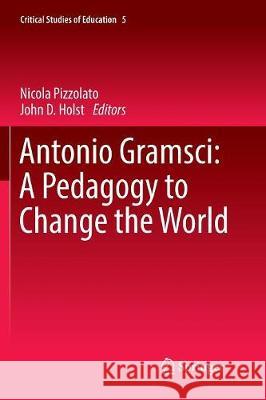Antonio Gramsci: A Pedagogy to Change the World » książka
topmenu
Antonio Gramsci: A Pedagogy to Change the World
ISBN-13: 9783319821030 / Angielski / Miękka / 2018 / 227 str.
Kategorie:
Kategorie BISAC:
Wydawca:
Springer
Seria wydawnicza:
Język:
Angielski
ISBN-13:
9783319821030
Rok wydania:
2018
Wydanie:
Softcover Repri
Ilość stron:
227
Waga:
0.36 kg
Wymiary:
23.39 x 15.6 x 1.35
Oprawa:
Miękka
Wolumenów:
01
Dodatkowe informacje:
Wydanie ilustrowane











